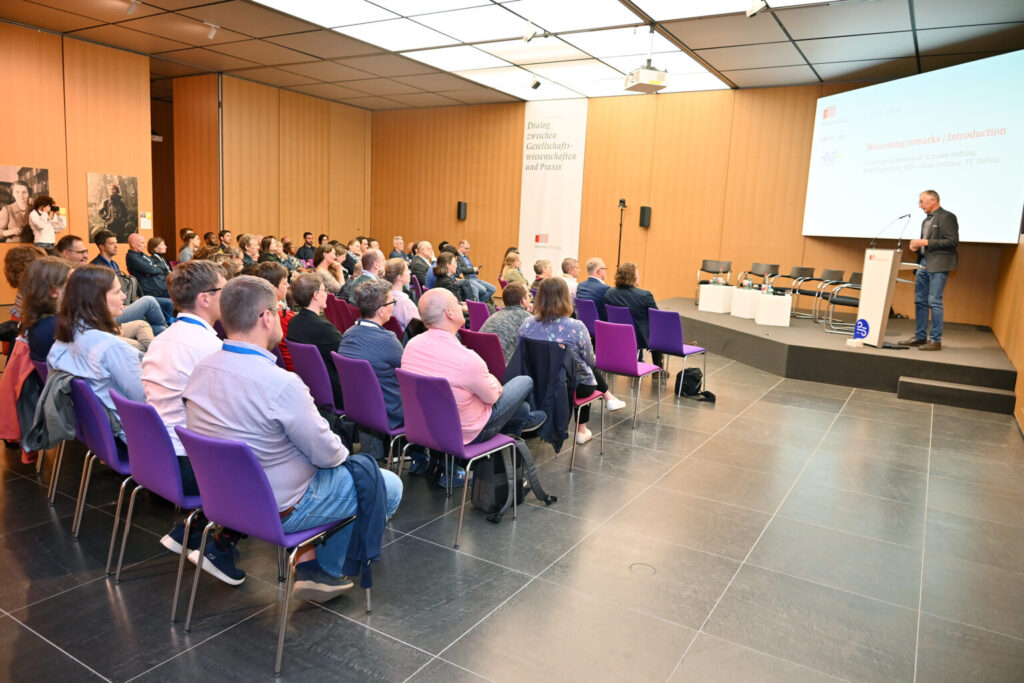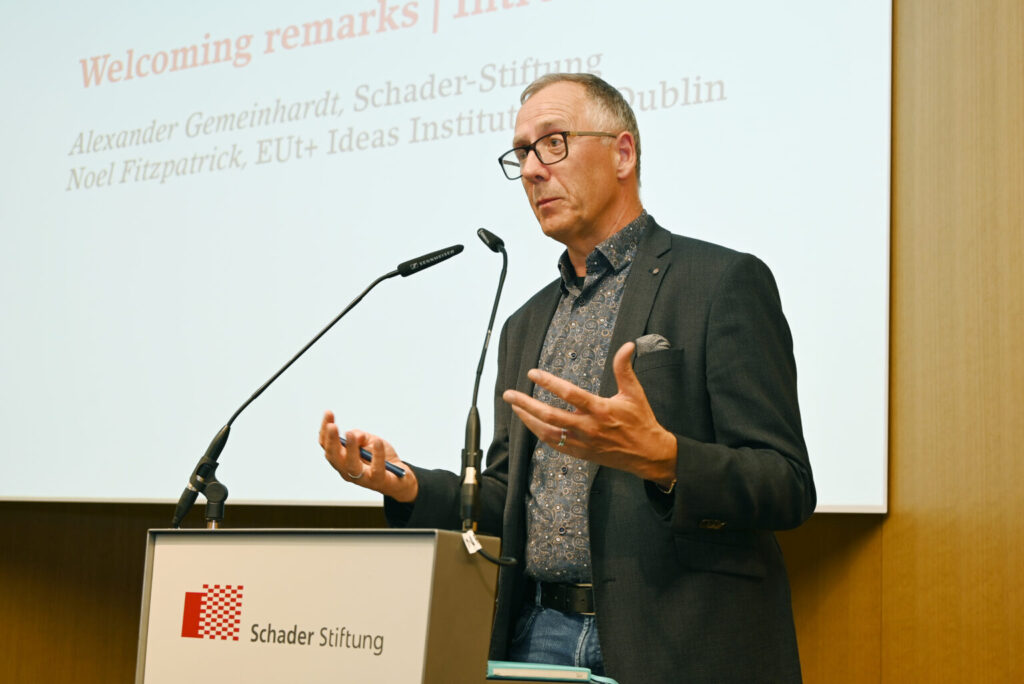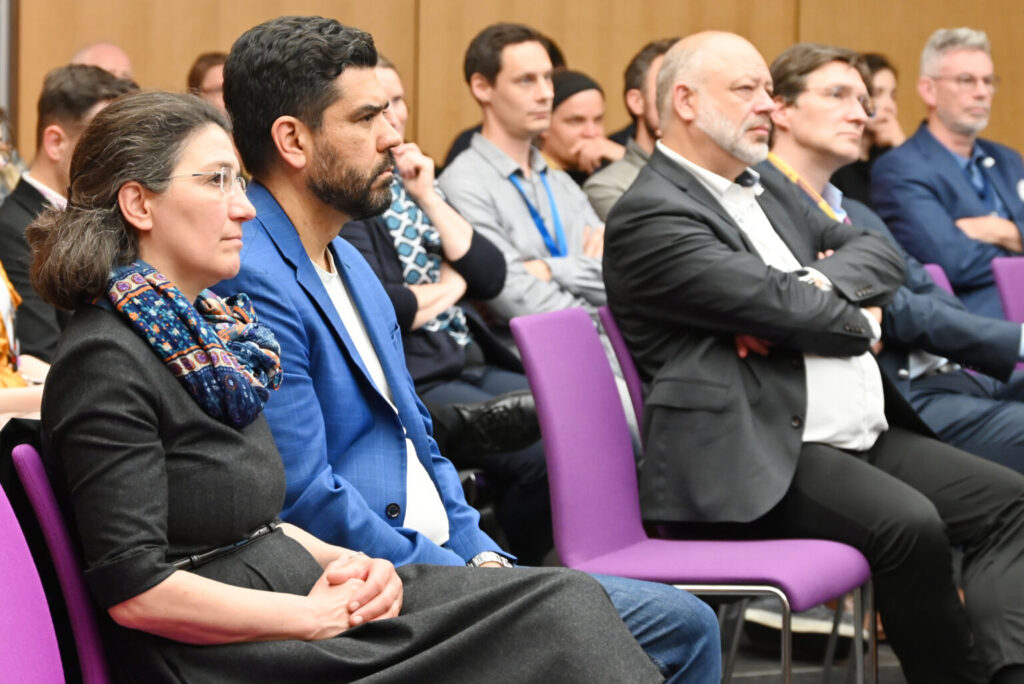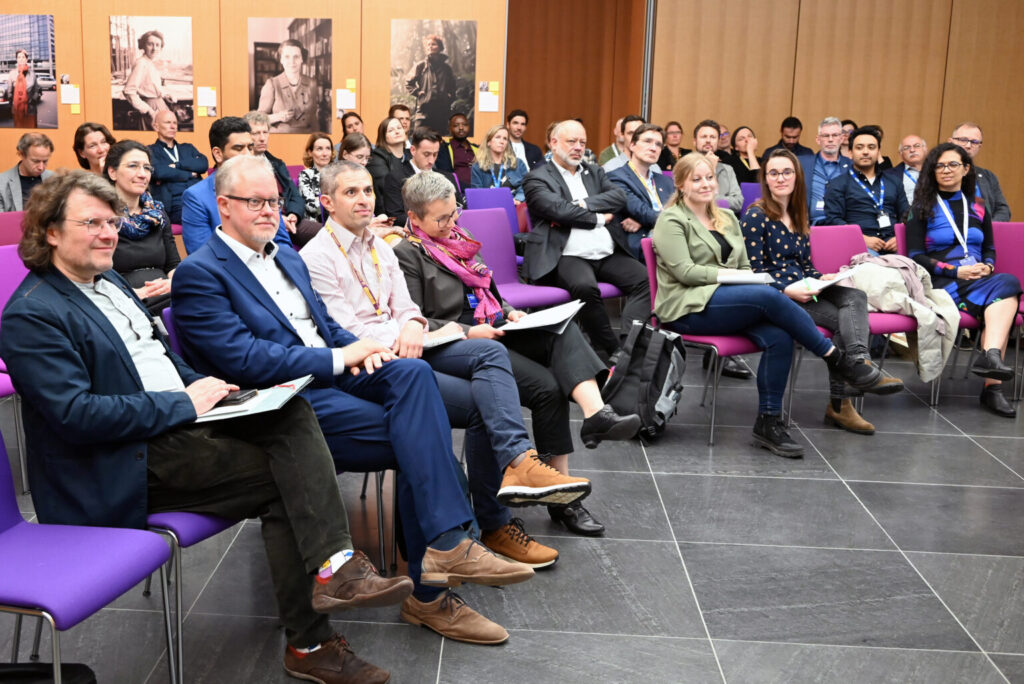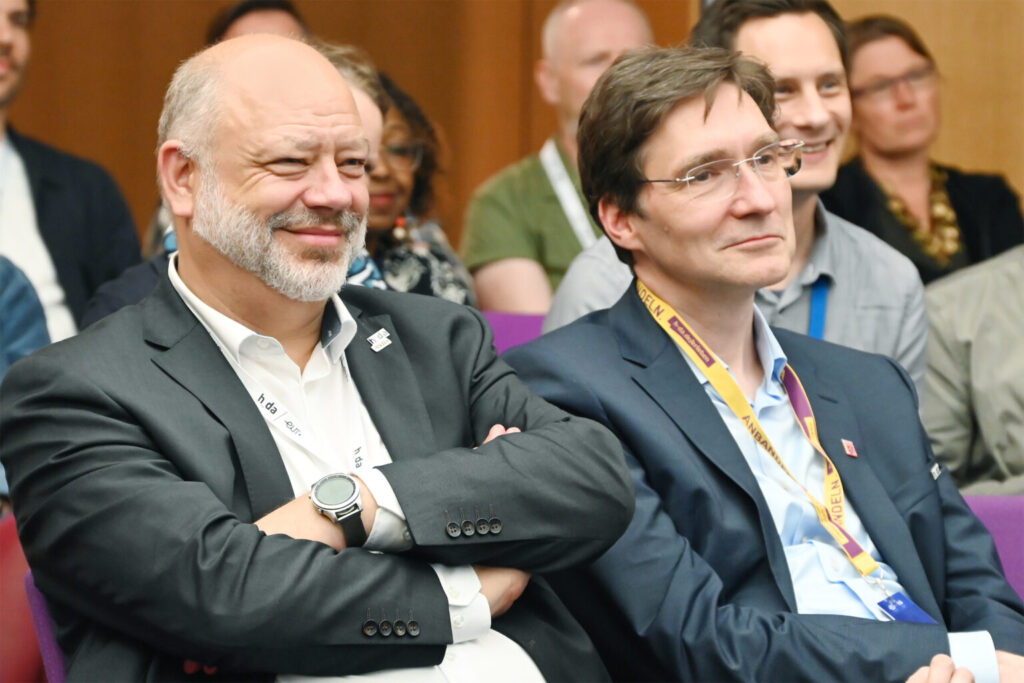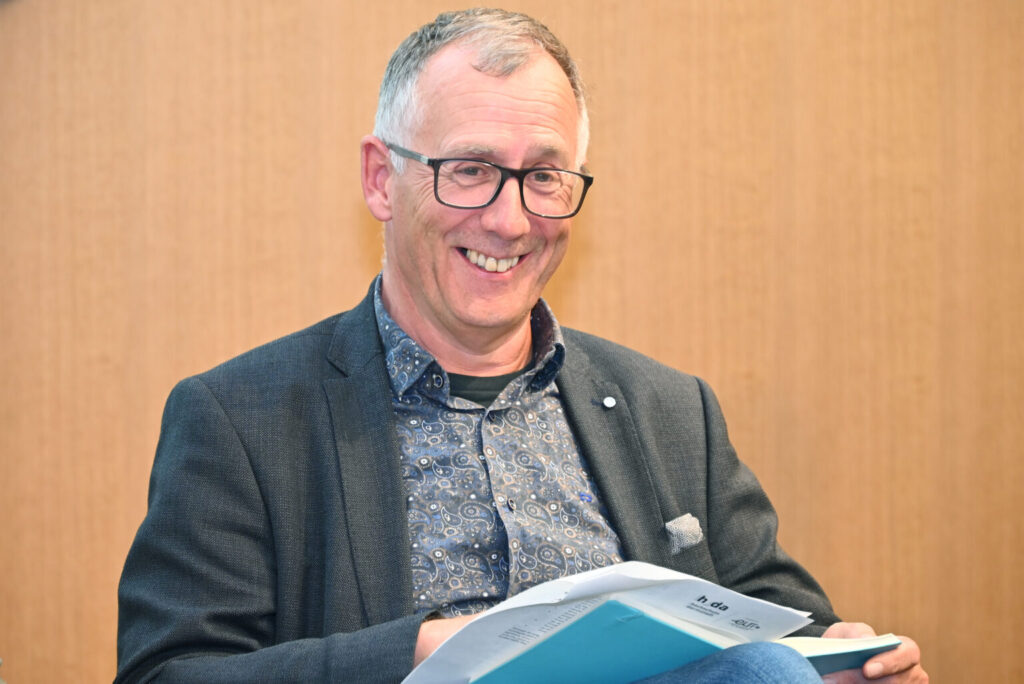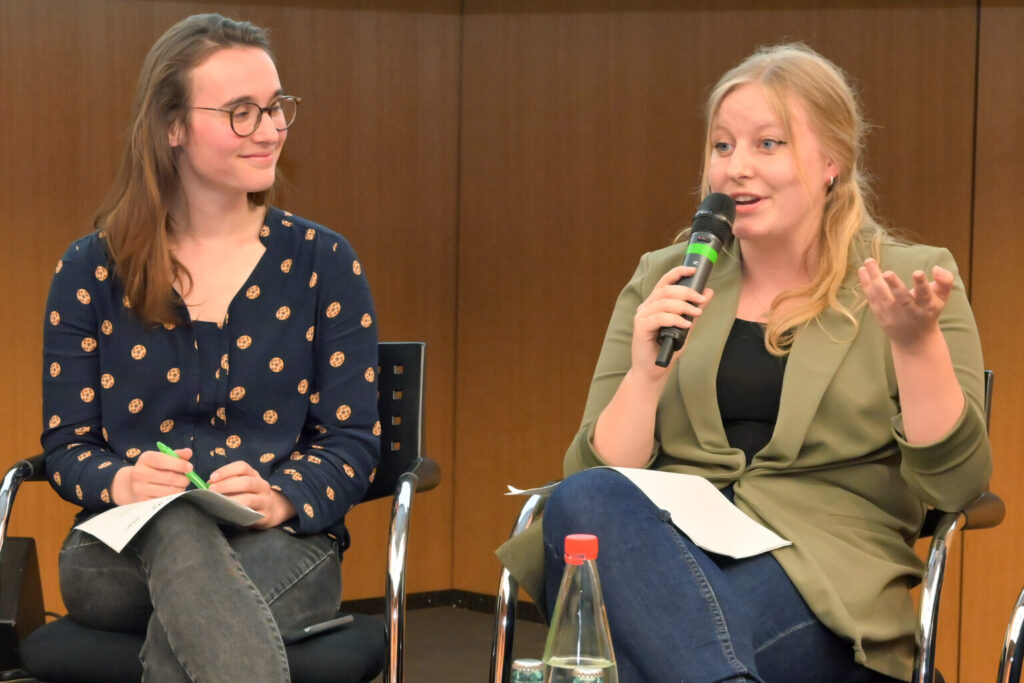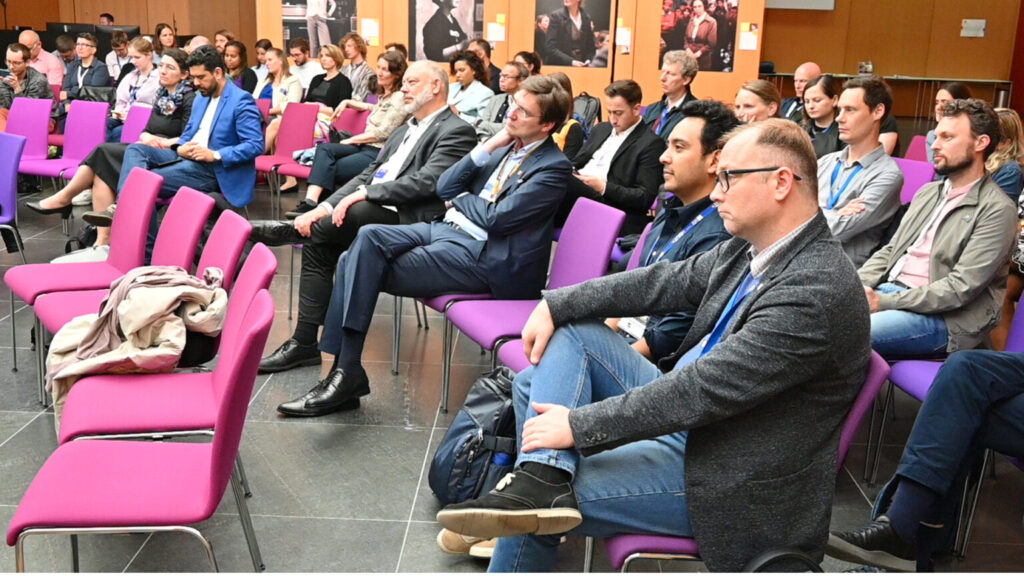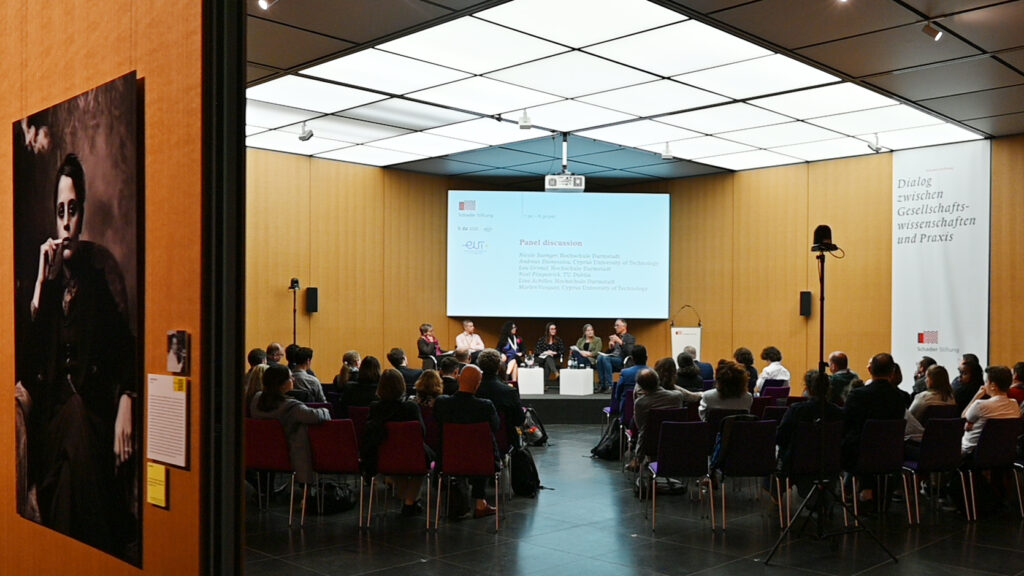
On May 22, 2024, the EUT+ Ideas Institute and Schader Stiftung hosted an expert panel discussion titled "Achieving Green Transition in EUt+: Challenges and Strategies for Integration." This event brought together representatives from the EUt+ alliance, a collaboration of nine technological universities across Europe, to discuss integrating sustainability into education, research, and the broader EUt+ framework. The panelists, each a recognized expert in their field, included Andreas Dionyssiou from the EUt+ Green Offices, Lou Grimal from the European Sustainability Science Lab, Noel Fitzpatrick from the European Culture and Technology Lab+, student representative Lina Achilles, and professor Marlen Vasquez. They provided invaluable insights into their respective roles and how they contribute to the green transition within the alliance.
Dionyssiou opened the discussion by detailing the establishment and operational status of the EUt+ Green Office. He emphasized the importance of developing standardized terms of reference to ensure cohesive sustainability efforts across all partner universities. Grimal followed with updates on the progress of the European Sustainability Science Lab, highlighting its pivotal role in driving sustainability-focused research within the EUt+ framework.
Fitzpatrick framed the discussion within the activities of the Ideas Institute, focusing on ethical ecological digital transitions. He stressed the importance of integrating these transitions into the core activities of the universities involved. Achilles provided the student perspective, advocating for increased student involvement and engagement in sustainability initiatives. She highlighted the need for curricula that incorporate the Sustainable Development Goals (SDGs) and urged for more opportunities for students to participate in sustainability projects. Professor Vasquez brought a teaching and research perspective, sharing best practices and innovative approaches to integrating sustainability into academic programs. She emphasized the necessity of interdisciplinary collaboration and knowledge exchange to advance sustainability goals.
The discussion, a collaborative effort among the EUt+ universities, covered various strategies for fostering interdisciplinary collaboration. Panelists debated the role of technology and digital innovation in supporting sustainability initiatives, both within the alliance and on a larger scale. They explored how the European Sustainability Science Lab could further contribute to sustainability-focused research and drive green transformation.
The panelists agreed on the need for comprehensive frameworks and methodologies to measure and communicate the impact of sustainability efforts across the EUt+ alliance. They discussed current initiatives and identified areas for improvement, particularly in integrating the SDGs into curricula and research activities.
In addressing institutional barriers such as bureaucratic inertia and siloed departments, the panel suggested incentives to promote sustainability, including financial incentives and more flexible administrative structures. They also highlighted the importance of community engagement and partnerships to amplify the impact of sustainability efforts.
The event concluded with a forward-looking discussion on how to sustain the momentum of green transition within EUt+. The panelists emphasized the importance of continuous dialogue and collaboration, ensuring that sustainability initiatives are inclusive, impactful, and aligned with the vision of Education for Sustainable Development (ESD) and Research for Sustainable Development (RSD) outlined by UNESCO.
Overall, the expert panel discussion, with its comprehensive overview of the challenges and opportunities, underscored the critical need for collaborative efforts, innovative strategies, and a unified approach to integrating sustainability into the core activities of the universities involved. The panel's conclusions provide a roadmap for the future of the green transition within the EUt+ alliance, instilling confidence in the audience about the path ahead.
